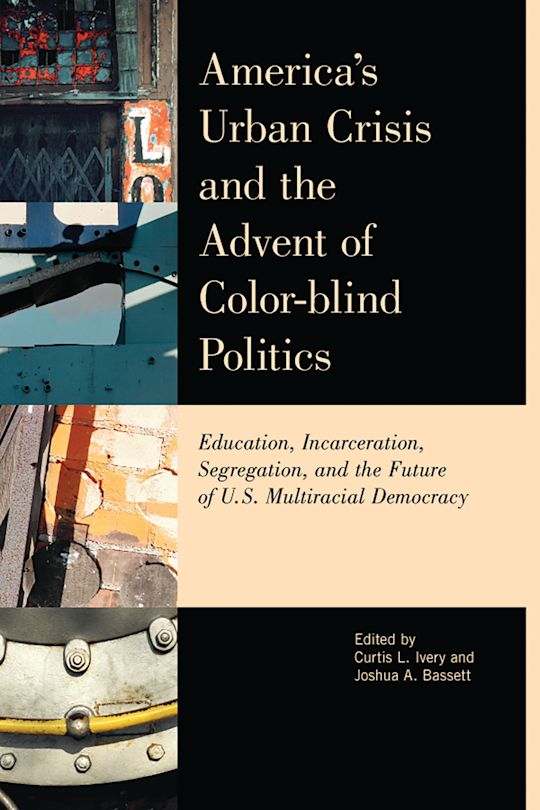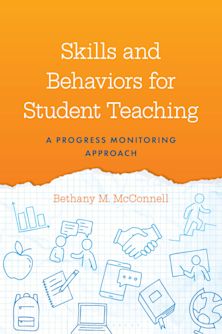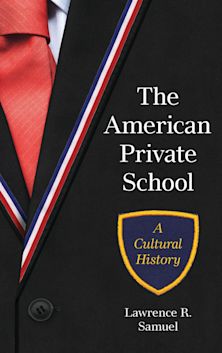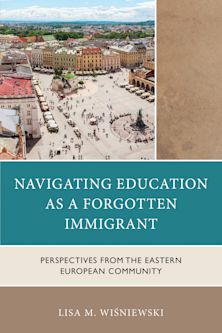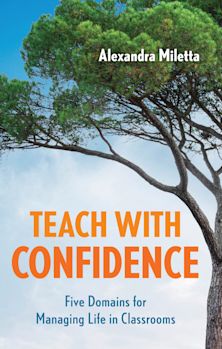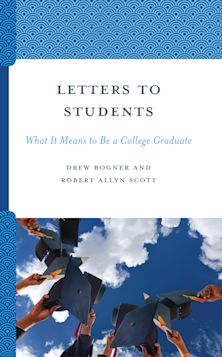- Home
- ACADEMIC
- Education
- Education - Other
- America's Urban Crisis and the Advent of Color-Blind Politics
America's Urban Crisis and the Advent of Color-Blind Politics
Education, Incarceration, Segregation, and the Future of the U.S. Multiracial Democracy
Curtis L. Ivery (Anthology Editor) , Joshua Bassett (Anthology Editor) , Houston Baker (Contributor) , Grace Lee Boggs (Contributor) , Benjamin DeMott (Contributor) , Erica Frankenberg (Contributor) , Henry Louis Gates Jr. (Contributor) , Andrew Grant-Thomas (Contributor) , Lani Guinier (Contributor) , Bob Herbert (Contributor) , Maria Hinojosa (Contributor) , Gary Howard (Contributor) , Colbert I. King (Contributor) , Arthur Levine (Contributor) , Manning Marable (Contributor) , Marc Mauer (Contributor) , Trinh Minh-Ha (Contributor) , Michael Omi (Contributor) , Nell Irvin Painter (Contributor) , Alvin F. Poussaint (Contributor) , john powell (Contributor) , John Telford (Contributor) , Lisa Thurau (Contributor) , Johanna Wald (Contributor) , Cornel West (Contributor) , James J. Zogby (Contributor)
America's Urban Crisis and the Advent of Color-Blind Politics
Education, Incarceration, Segregation, and the Future of the U.S. Multiracial Democracy
Curtis L. Ivery (Anthology Editor) , Joshua Bassett (Anthology Editor) , Houston Baker (Contributor) , Grace Lee Boggs (Contributor) , Benjamin DeMott (Contributor) , Erica Frankenberg (Contributor) , Henry Louis Gates Jr. (Contributor) , Andrew Grant-Thomas (Contributor) , Lani Guinier (Contributor) , Bob Herbert (Contributor) , Maria Hinojosa (Contributor) , Gary Howard (Contributor) , Colbert I. King (Contributor) , Arthur Levine (Contributor) , Manning Marable (Contributor) , Marc Mauer (Contributor) , Trinh Minh-Ha (Contributor) , Michael Omi (Contributor) , Nell Irvin Painter (Contributor) , Alvin F. Poussaint (Contributor) , john powell (Contributor) , John Telford (Contributor) , Lisa Thurau (Contributor) , Johanna Wald (Contributor) , Cornel West (Contributor) , James J. Zogby (Contributor)
You must sign in to add this item to your wishlist. Please sign in or create an account
Description
Over 40 years ago the historic Kerner Commission Report declared that America was undergoing an urban crisis whose effects were disproportionately felt by underclass populations. In America's Urban Crisis and the Advent of Color-blind Politics, Curtis Ivery and Joshua Bassett explore the persistence of this crisis today, despite public beliefs that America has become a "post-racial" nation after the election of Barack Obama to the presidency.
Ivery and Bassett combine their own experience in the fields of civil rights and education with the knowledge of more than 20 experts in the field of urban studies to provide an accessible overview of the theories of the urban underclass and how they affect America's urban crisis. This engaging look into the still-present racial politics in America's cities adds significantly to the existing scholarship on the urban underclass by discussing the role of the prison-industrial complex in sustaining the urban crisis as well as the importance of the concept of multiracial democracy to the future of American politics and society. America's Urban Crisis and the Advent of Color-blind Politics encourages the reader not only to be aware of persisting racial inequalities, but to actively engage in efforts to respond to them.
Table of Contents
Foreword by Cornel West
Preface
Chapter 1: Introduction and Theoretical Overview
Chapter 2: Color-blind Ideology and the Urban Crisis
“Color-blindness, Racism, and Multiracial Democracy”
Michael Omi
"Difference,’ Emiseration, and America's Urban Crisis”
Houston Baker
“Sure, We're All Just One Big Happy Family”
Benjamin Demott
“Immigration, Education, and the Media”
Maria Hinojosa
“Incarcerated and Disappeared in the Land of the Free”
Trinh Minh-Ha
Chapter 3: Mass Incarceration and the Urban Crisis
“Mass Incarceration, Civil Death, and the New Racial Domain”
Manning Marable
“Mass Incarceration, Race, and Criminal Justice Policy”
Marc Mauer
“Racial Profiling and Imprisonment of the Mentally Ill”
Bob Herbert
“The Case of Jonathan Magbie”
Colbert I. King
Chapter 4: Segregation and the Urban Crisis
“Race and Residential Segregation in Detroit”
john powell and John Telford
“Health Care as a Civil Rights Issue”
Alvin F. Poussaint
“A Call for Multicultural Dialogues”
James J. Zogby
“American Education: Still Separate, Still Unequal”
Arthur Levine
Chapter 5: Education and the Urban Crisis
“Toward a Paradigm Shift in Our Concept of Education”
Grace Lee Boggs
“Writing and Multiracial Education”
Nell Irvin Painter
“Police In Schools: Can a Law Enforcement Orientation Be Reconciled With an Educational Mission?”
Johanna Wald and Lisa Thurau
“Pursuing the Promise of Brown in the 21st Century”
Erica Frankenberg
Chapter 6: Multiracial Democracy and the Urban Crisis
“In Our Lifetime”
Henry Louis Gates, Jr.
“Making Every Vote Count”
Lani Guinier
“Segregation by Race, Segregation from Opportunity, and the Subversion of Multiracial Democracy in Detroit”
Andrew Grant-Thomas
“How We Are White”
Gary Howard
Chapter 7: Conclusion
Product details
| Published | 16 Sep 2011 |
|---|---|
| Format | Ebook (Epub & Mobi) |
| Edition | 1st |
| Extent | 168 |
| ISBN | 9781442211018 |
| Imprint | Rowman & Littlefield |
| Publisher | Bloomsbury Publishing |
About the contributors
Reviews
-
America's Urban Crisis and the Advent of Color-blind Politics explains the continuity and depth of racial injustice in the US, focusing on the failures of colorblind approaches to race. After the containment of the civil rights movement, the claim of colorblindness was adopted (from Justice Harlan's dissent in Plessy), as a type of 'anti-racism lite.' But is it also 'racism lite?' In its dismissal of race, color-blind politics fails to address the system of crime and punishment, the ongoing segregation and urban inequality, and the numerous other forms of racial despotism that still operate in the United States today. Most valuable here is the authors' argument for multiracial democracy as the way forward. Highly recommended for course adoption!
Howard Winant, director, Center for New Racial Studies, University of California Santa Barbara; author, The World Is A Ghetto: Race and Democracy Since World War II
-
Ivery and Bassett have pulled together a superb collection of essays by many of America's most influential commentators and scholars on race. Together, their essays dismantle the premises of colorblindness and offer a compelling analysis of the ways that racial differences persist in this ostensibly post-racial era. Students, general readers, and policy makers alike will benefit from the rich and eye-opening insights in these pages.
Thomas J. Sugrue, David Boies Professor of History and Sociology, University of Pennsylvania
-
A state of the art collection on an historically important issue in American society in a time when the forces of the New Right want to declare the battle for human rights and dignity over and won.
Philip M. Anderson, The City University of New York
-
This collection stands as an important commentary on how color-blind politics have sustained decades of racial and economic inequalities throughout America's urban areas. In doing so, the book offers key insights on how we may move forward in addressing some of our greatest challenges as a nation.
Douglas A. Blackmon, author of Slavery by Another Name: The Re-Enslavement of Black Americans from the Civil War to World War II
-
This book situates the ideology of color-blindness within a broader context of structures and ways of talking that reproduce racial inequality-all the while focusing our attention on the crisis in American cities. This is a timely book. It is a sounding of the alarm - a call to action. I pray that we all answer.
Eddie Glaude Jr., William S. Tod Professor of Religion and African American Studies, Princeton University
-
Too many conversations about race in this region have morphed into cocktail-party chatter -- or bus tours by wide-eyed suburbanites -- fueled by the fantasy that if we all just got to know each other a little better, everything would be all right.
A new book by Detroit's own Curtis L. Ivery, America's Urban Crisis and the Advent of Color-blind Politics, won't let us off that easy.
Ivery, chancellor of the Wayne County Community College District, and Joshua Bassett, a WCCCD faculty member, collected and edited more than 20 essays by some of America's leading social thinkers, including Ivery's friends Cornel West, Henry Louis Gates Jr., the late Manning Marable and Grace Lee Boggs.
Race and class are implicit throughout, but this is not just another rap on race. America's Urban Crisis represents a clear-eyed, historical look at the economic and social policies, supported by color-blind politics, that have gutted and segregated Detroit and other U.S. cities, relegating millions of their residents to generational poverty, failing schools and an insidious prison industry.
It's a hopeful message from a hopeful man who has given us a hopeful book -- and a good place to start a real conversation on race and the region.Detroit Free Press

ONLINE RESOURCES
Bloomsbury Collections
This book is available on Bloomsbury Collections where your library has access.









